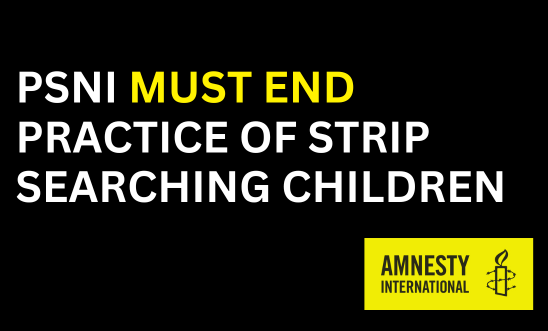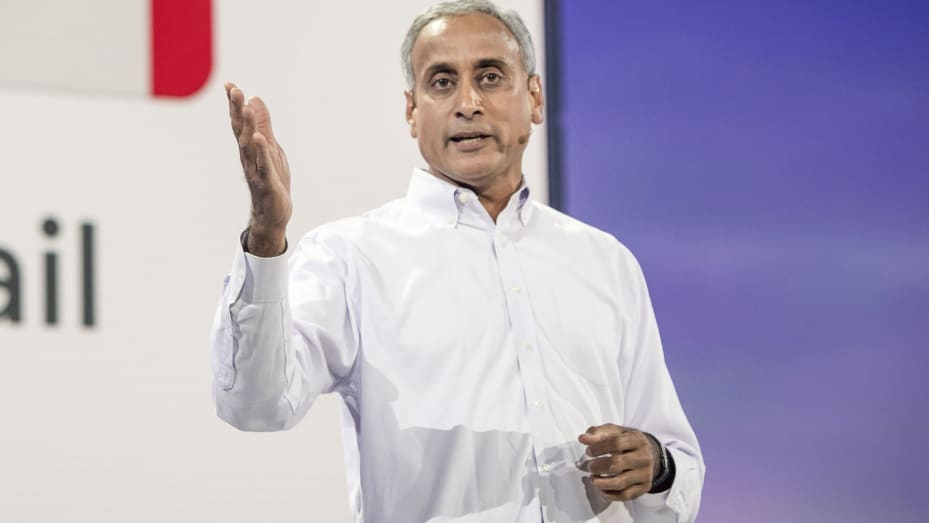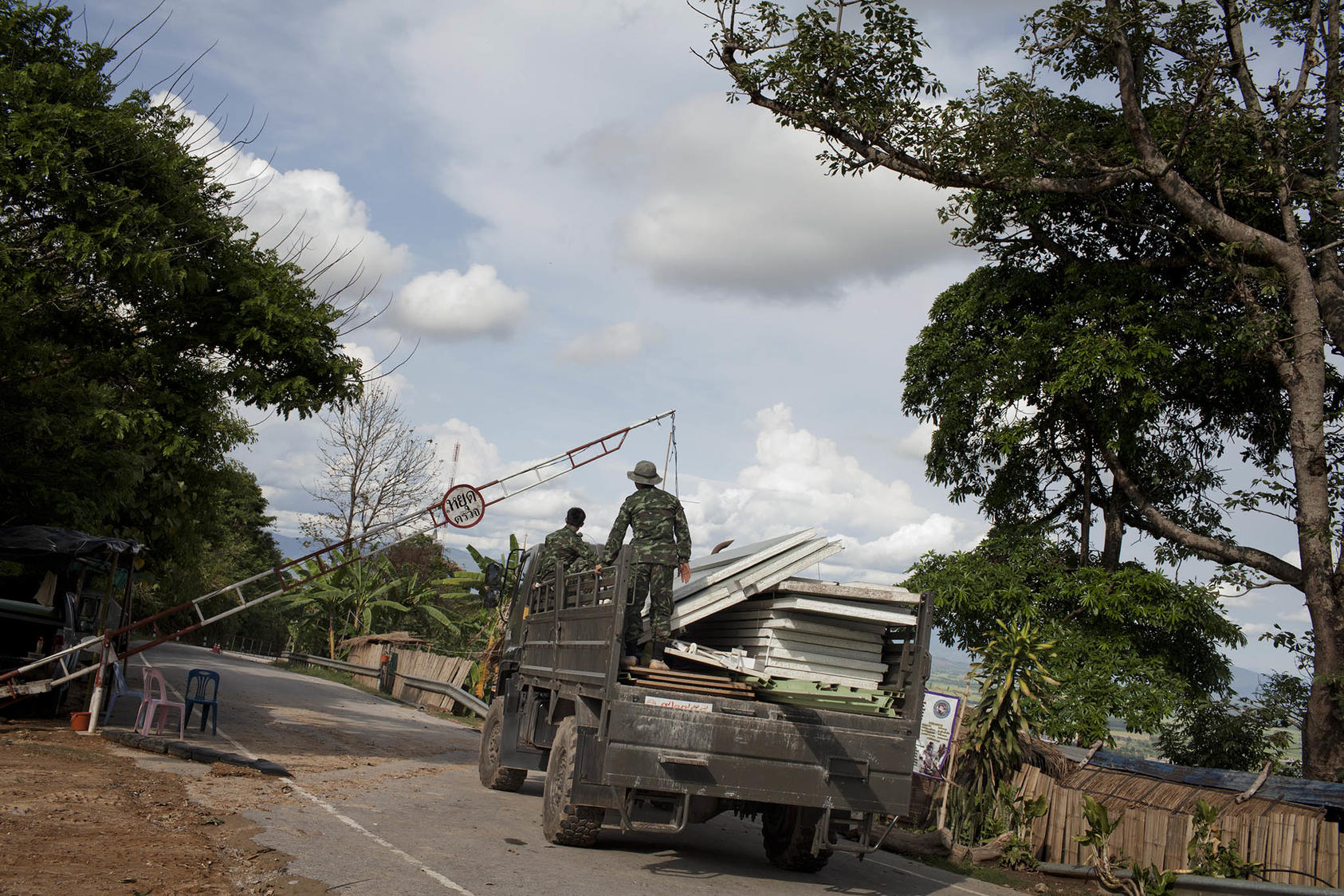That is roughly how it goes along Myanmar’s lawless border, with variations for geography and the local cast of characters. Late last year, awareness began to rise in the region that Myanmar’s criminal enclaves were metastasizing, and the call do something about it grew louder from the media, civil society and governments. While the zones themselves were not a new phenomenon, a nefarious development amplified international alarm: After Beijing’s anti-COVID measures sent Chinese workers scurrying home from the enclaves, their criminal operators began luring jobseekers from around the world with offers of lucrative high-tech jobs, then trafficking them across borders into cyber slavery to work in financial scams.
Despite the growing perception of the enclaves as a global security threat, nothing of consequence has changed. Every angle of attack is blunted by the tangle of interests in these zones — powerful organized criminal groups, local armed actors, fragmented sovereignty, and corruption, with the gambling and fraud city of Shwe Kokko at the heart of it all.
Myanmar’s military has neither the will nor the capacity to manage its own Border Guard Forces (BGF), much less curb the reach of transnational crime from enclaves under BGF control. Much of the country, embroiled in full scale revolution against the junta, is beyond the reach of the overstretched army. It will be up to key neighboring countries, in cooperation with international law enforcement, to cut off access to critical cross-border connections and resources. For the United States, which has already been victimized, this crime wave represents a growing non-traditional security threat that requires a robust response.
BGF and Its Criminal Syndicates Grow Deeper Roots in Myanmar
At least 17 distinct crime zones now provide an estimated 5 million square meters of criminal office space along a 31-mile stretch of the Moei River on the Myanmar border with Thailand alone.
Despite strict border controls and lockdowns during the COVID-19 pandemic, these zones expanded dramatically in size following the 2021 military coup. For example, the notorious KK Park Zone — sensationalized on Tik-Tok for harvesting and selling the organs of trafficking victims who refused to work on scams — grew from 26 to over 75 structures between 2021 and May 2023.
By early last year, the criminal activity had victimized nationals of more than 46 countries, with the majority trafficked into Myanmar through Thailand. Despite increased awareness of the problems by the media and international law enforcement, the gangs continued expanding their ability to infiltrate online hiring platforms, set up fraudulent recruitment firms and networks, establish links with traffickers, and set up shop in new jurisdictions across Myanmar.
By March 2023, growing organized crime activity in Karen State began to generate tremendous pressure for action even on resistance figures. Karen civil society groups raised concerns that the BGF’s illicit pursuits threatened to undermine governance and prospects for democracy and autonomy in Karen State, as suspicion deepened that a growing number of Karen resistance leaders had ties to the BGF schemes.
In April, tensions spilled into armed conflict when a coalition of pro-democracy armed forces attacked the BGF criminal empire in Shwe Kokko and other illicit BGF businesses in Myawaddy township. “Shwe Kokko is a hub of drugs and sex-trafficking that funds the military regime with dirty money,” they charged. The junta responded with a joint force of BGF and army troops, intercepting the advancing resistance fighters, crushing a key People’s Defense Force group, and taking dozens of hostages. Thus, the junta proudly demonstrated its determination to keep Shwe Kokko a safe zone for crime.
An Online Confidence Scheme — ‘Pig Butchering’ — Goes Global
Initially focused on illegal online gambling, the crime zone operators now concentrate on a new form of fraud known as “pig butchering” or in Chinese, “shazupan.” The scheme originated in China around 2018, and as COVID depressed profits from gambling, Chinese-affiliated crime groups ramped it up.
Here’s how it works: Scammers lure potential victims into trusting online relationships over a long period. Eventually, the scammer proposes a small investment idea and often transfers to the victim purported returns over what appear to be legitimate online trading platforms. This process, known as “fatting the pig,” continues until the victim feels secure enough to hand over substantial funds. The scammer then “butchers the pig” and disappears with the money.
Some syndicates are developing new forms of artificial intelligence to identify potential victims on Western social media sites and WhatsApp, or to enhance the efficiency of the scams. This includes the use of generative AI to create images and video content for fraud schemes, as well ChatGPT to generate scripts and content.
The Military and BGFs Provide Protection for Myanmar’s Crime Enclaves
The overarching obstacle to staunching the spread of organized crime in Myanmar is the chaos in governance and the lawlessness triggered by the February 2021 military coup. While the elected government tried to stem the influx of Chinese gangsters, the junta reversed those efforts after the coup, and the illegal operations quickly resumed their rapid expansion.
At the center of that story is the Karen Border Guard Force, which maintains its headquarters in the very heart of the Shwe Kokko crime city.
The rise of the Karen BGF, operating at least nominally under Myanmar Army control, was accelerated by the coup and its ties with the Chinese crime bosses.
The Karen BGF emerged in the late 2000’s from an ethnic armed group called the Democratic Karen Benevolent Army. From 2017-2019, it forged alliances with two key Chinese criminals, She Zhijiang, head of Yatai International Holding, and Wan Kuok-Kui (aka Broken Tooth), a triad leader who heads a transnational criminal organization known as the Hongmen World Historical and Cultural Association. The BGF provided land and support for these first two large illegal gambling cities to spring up near the Thai border — Shwe Kokko and Saixigang (now known as Dongmei Zone), respectively.
When Thai police arrested She Zhijiang in August 2022, his absence left the BGF in control of a massive criminal empire, vastly increasing its wealth and power. Meanwhile, Wan Kuok-kui, who was sanctioned by the United States in December 2020, relocated to China, where his focus seems to be laundering hundreds of millions of dollars into the Chinese economy. His move apparently gave the BGF even wider control over the enclave’s criminal activity.
From the beginning of their emergence in Myanmar, the autonomous crime zones have relied on Karen BGF leaders to offer secure space. By providing security, controlling border trade, and handling relations with rival armed groups and the Myanmar army, the BGF and its leaders are among the greatest beneficiaries of the illicit activity.
Profits from the partnership have been plowed into high-tech upgrades of weapons and other military equipment for the BGF, commanded by Col. Chit Thu and his colleague, Major Mote Thon. Indeed, Chit Thu’s forces’ weapons are qualitatively superior to the Myanmar Army’s, making his BGF one of the most lethal units under the military’s “command.”
Thailand Sees the Threat, But Makes Little Headway Against It
Seeking influence and material support, the BGF and the Chinese crime groups have invested heavily in Thailand. They use the country to traffic people into the criminal zones and to access the internet and electricity essential to their operations. Thailand is also a source and transit route for the BGF’s sophisticated arms and equipment — made easy by BGF control of crossing points for bilateral trade.
By mid-2022, Thai authorities were increasingly concerned about what they call “grey Chinese business” and an explosion of trafficking Thai nationals and tens of thousands of foreigners into Myanmar. A string of murders, gunfights and rumors of Chinese kidnapping, assaulting or torturing victims on Thai soil produced a serious public outcry.
Consequently, Thailand has begun to clamp down. Yatai crime boss She Zhijiang is on the verge of extradition to China. A Thai working committee was set up to crack down on trafficking, and Thai law enforcement has mobilized to investigate Chinese “grey business.” In June 2023, the Thai police raided the Hongmen office in Thailand, arrested a second notorious criminal associated with Shwe Kokko named Yu Xinqi, and scooped up the owners of several exclusive nightclubs catering to Chinese crime bosses.
So far, however, these measures have failed to dent the Thai base for criminal operations in Myanmar. Construction continues around Mae Sot and new players are emerging along the Thai border to the north in Myanmar territory controlled by the United Wa State Army.
Meanwhile, the Karen BGF has brazenly flouted Thailand’s enforcement efforts. When Thai police arrested She Zhijiang, a BGF spokesman stated publicly that the arrest would not “harm normal operations” in Shwe Kokko. When Thailand moved to curtail electricity to the border compounds in early June 2023, the BGF threatened to close the largest frontier crossing to bilateral trade. After Thailand squeezed the power supply, the BGF ramped up diesel imports for generators, turning a crackdown into a money-making opportunity.
Even China’s Moves to Curb Criminal Groups Has Had Only Mixed Effects
As a key target for scam operations, China has significant steps to rein them in to protect its own citizens and its relations with the Southeast Asia neighborhood. Beijing has enhanced anti-money laundering requirements for banks, cut off criminals’ access to Chinese telecoms by policing WeChat, raised public awareness on trafficking and banned travel for many Chinese to Southeast Asia.
Unfortunately, none of this has stopped the networks from regional spread. Instead, gangsters have adapted, focusing more on markets outside of China and recalibrating efforts to traffic young Chinese job seekers.
Last month, Chinese authorities insisted the junta crush criminal activities directed at Chinese nationals from Myanmar. As yet, Chit Thu and his BGF are still operating with impunity, making it clear that not even a military operation — like the one launched by the pro-democracy forces in April — will dislodge the criminals. Taking the cue, other armed militias are building their own enclaves at an alarming rate.
Only a Concerted, Transnational Approach Will Halt the Spread of Myanmar-Based Crime
To stem the rise of these criminal networks will require a coordinated international effort. The United States could potentially take a leading role, partnering with others to sanction the BGF and cut off telecommunications services to all criminal militias in Myanmar. This would call for careful coordination with neighboring countries and other international law enforcement. Repatriating the sheer number of globally trafficked victims inside Myanmar will require a major cross-border operation.








:quality(70):focal(1866x1574:1876x1584)/cloudfront-eu-central-1.images.arcpublishing.com/thenational/CNTNBFHUKMGRXFZUJIE3U3XDEE.jpg)
